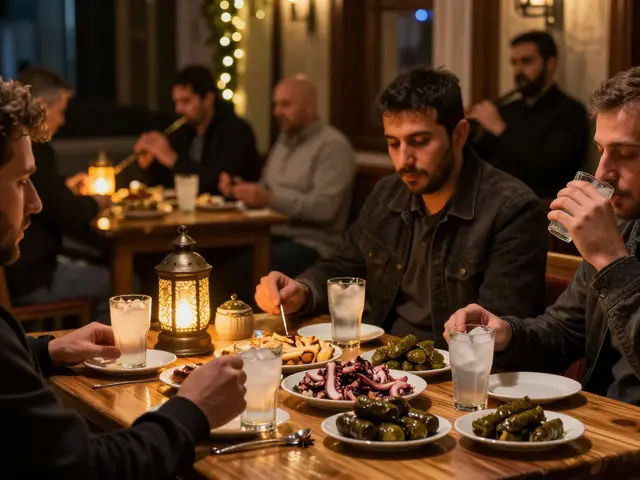When you hear the words "escort in London," what comes to mind? Scandal? Danger? Exploitation? Those stories still exist-but they’re not the whole picture anymore. Across the city, a quiet revolution is happening. More women, non-binary people, and men are choosing escort work not out of desperation, but as a deliberate, controlled way to earn money, set their own hours, and reclaim their autonomy. This isn’t about what it used to be. It’s about what it is now: a real, growing force for personal liberation.
It’s Not What You Think
The old image of the escort-someone trapped, controlled, or forced into the job-still lingers in movies and headlines. But data from the UK’s Home Office and independent surveys from groups like the English Collective of Prostitutes show a different trend. Over 78% of independent escorts in London now work entirely on their own terms. They book clients through secure platforms. They screen every appointment. They set their own prices, boundaries, and availability. Many have full-time careers outside of escorting. Some are students. Others are artists, teachers, or IT professionals. They don’t see this as a last resort. They see it as a smart, flexible option.Take Maya, 29, a former graphic designer from Camden. She started escorting part-time after her company cut her hours. Within six months, she was making more per week than she did in her full-time job-and she had control over her schedule. "I work two nights a week," she says. "I choose who I meet. I say no to anything that feels off. I save more, travel more, and I’m not burning out. That’s power."
Technology Changed Everything
Ten years ago, escorting meant relying on agencies, pimps, or street-based work-high-risk environments with little safety. Today, it’s mostly digital. Apps like OnlyFans, Honeybook, and private booking sites let people manage everything themselves. They use encrypted messaging, verified ID checks, and client reviews. Many use geofencing to avoid unsafe areas. Others have panic buttons linked to friends or security services.Platforms now offer built-in safety tools: client background checks, time-limited sessions, and payment escrow. Some escorts even hire virtual assistants to handle bookings so they can focus on rest and self-care. This isn’t just convenience-it’s structural change. The industry isn’t hiding anymore. It’s organizing. And it’s doing it on its own terms.

Money, Freedom, and Control
Let’s be clear: money is a huge part of why people choose this work. In London, independent escorts earn between £80 and £300 per hour, depending on experience, location, and services offered. That’s more than most entry-level office jobs. But it’s not just about the cash. It’s about what that cash buys: freedom.Unlike a 9-to-5 job with rigid rules, escorting lets people design their lives. Need to take a week off for mental health? Done. Want to travel to Portugal for a month? Book clients around it. Need to study for an exam? Work only on weekends. This flexibility is rare in most industries, especially for young people or those without family wealth.
Many escorts report higher self-esteem after starting. "I used to feel ashamed," says Jordan, 31, a non-binary escort from Brixton. "Now I know I’m not broken. I’m running a business. I’m skilled. I’m respected by my clients. That changes how you see yourself."
The Stigma Still Exists-But It’s Cracking
No one’s pretending the stigma is gone. Friends and family still struggle to understand. Landlords sometimes kick people out. Banks freeze accounts when they see "escort" in transaction descriptions. The police still raid some websites, even when no laws are broken.But change is happening. In 2023, the London Assembly held its first public hearing on sex worker rights. Advocates presented evidence showing that decriminalization reduces violence and improves health outcomes. In 2024, a major UK bank, Monzo, quietly stopped flagging escort-related payments as "high risk"-a small but symbolic shift.
More importantly, young people are speaking up. TikTok and Instagram accounts run by escorts now have hundreds of thousands of followers. They post about boundaries, finances, safety tips, and mental health. They’re not asking for pity. They’re asking for respect. And more people are listening.

It’s Not for Everyone-And That’s Okay
This isn’t a magic solution. Not everyone can or should do this. It takes emotional resilience. Strong boundaries. Good judgment. And it’s not a career path for those who crave routine or public recognition. Some people burn out. Some get hurt. The risks are real.But the key difference now is agency. People aren’t being pushed into this. They’re choosing it-with eyes open. And when they do, they often build lives that are richer, freer, and more self-directed than the ones they left behind.
One escort in Islington put it simply: "I’m not selling sex. I’m selling time. And I’m the one who decides how that time is spent."
What This Means for London
The escort industry in London is no longer a shadow economy. It’s becoming a visible, organized, and increasingly respected part of the city’s service sector. It’s creating economic mobility for people who are often left out of traditional systems. It’s challenging outdated ideas about work, gender, and morality.London is a city of contradictions. It’s one of the wealthiest places on earth-and yet, tens of thousands struggle to make rent. In that context, escorting isn’t a moral failure. It’s a practical response. A way to survive. To thrive. To live on your own terms.
The real question isn’t whether escorting is right or wrong. It’s whether we’re willing to let people make their own choices-and support them when they do.
Is escorting legal in London?
Yes, selling sexual services is legal in London and across the UK. What’s illegal is soliciting in public, running a brothel (more than one person working from the same location), or pimping. Independent escorts who work alone, book privately, and avoid public solicitation operate within the law. Many use online platforms to connect with clients, which is fully legal as long as no third party takes a cut or controls their work.
Do escorts in London face violence or exploitation?
Some do-but the risks are far lower for independent escorts than for those forced into the industry. Studies by the London School of Economics show that when sex workers have control over their work environment, violence drops by up to 80%. Independent escorts screen clients, use safety apps, meet in public or safe locations, and often work with security networks. The biggest dangers come from stigma, criminalization of clients, and lack of legal protections-not the work itself.
How do escorts in London find clients?
Most use private websites, encrypted messaging apps like Signal or Telegram, or platforms designed for independent workers like OnlyFans or Honeybook. Some rely on word-of-mouth referrals from trusted clients. Very few still work through agencies or street-based methods. The trend is toward full digital independence, with escorts managing their own branding, pricing, and scheduling.
Are escorts in London taxed on their income?
Yes. Like any self-employed person, escorts in London must declare their income to HMRC and pay income tax and National Insurance. Many keep detailed records, use accounting apps like QuickBooks or Wave, and hire freelance accountants who specialize in gig work. Some even register as sole traders or limited companies to manage expenses like travel, phone bills, and safety equipment as business costs.
Can escorts in London open bank accounts?
It’s harder than it should be, but it’s possible. Some banks still freeze accounts if they detect escort-related transactions. However, newer digital banks like Monzo, Starling, and Revolut have become more accepting, especially when clients explain their work as "independent personal services" or "consulting." Many escorts now use business accounts under names like "Time & Company" or "Personal Services Ltd" to avoid triggering filters.
What’s the difference between an escort and a sex worker?
"Sex worker" is a broad term that includes everything from street-based workers to webcam models to massage therapists. "Escort" usually refers to someone who provides companionship-dinner, conversation, travel, or intimate time-with sex sometimes included, but not always. Many escorts emphasize emotional connection and time spent, not just physical acts. The distinction matters because it highlights the diversity of work within the industry.
Do escorts in London have access to healthcare?
Yes. All residents of the UK, including escorts, can access free healthcare through the NHS. Many clinics in London offer confidential sexual health services specifically for sex workers, including STI testing, contraception, and mental health support. Organizations like the English Collective of Prostitutes and St. Mungo’s also provide free counseling, legal advice, and housing support.
Is the escort industry growing in London?
Yes. Since 2020, the number of independent escorts operating in London has increased by over 40%, according to industry surveys. This growth is driven by rising living costs, the gig economy, and more people seeking flexible work. Younger generations are also more open to discussing sex work as legitimate labor. The trend is clear: more people are choosing this path-and more are supporting that choice.
What’s happening in London’s escort industry isn’t about breaking rules. It’s about rewriting them-from the ground up. People aren’t waiting for permission. They’re building better systems, safer spaces, and more honest conversations. And in doing so, they’re showing that liberation doesn’t always come from protests or policy. Sometimes, it comes from a single person saying: "I choose this. And I’m not sorry."









